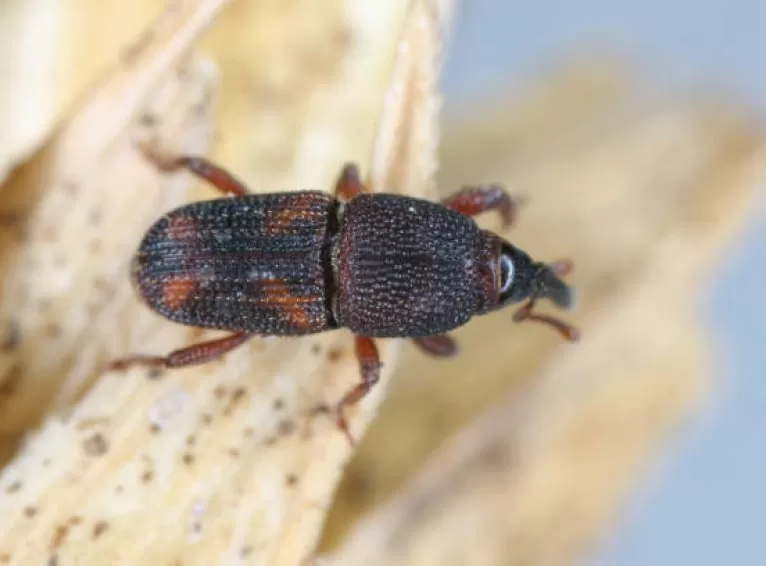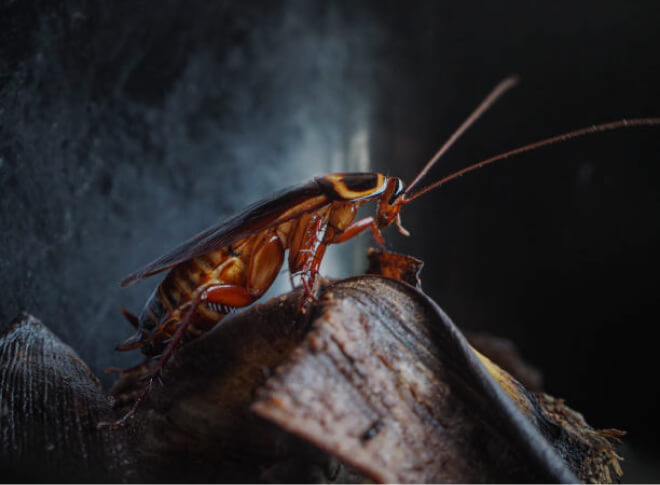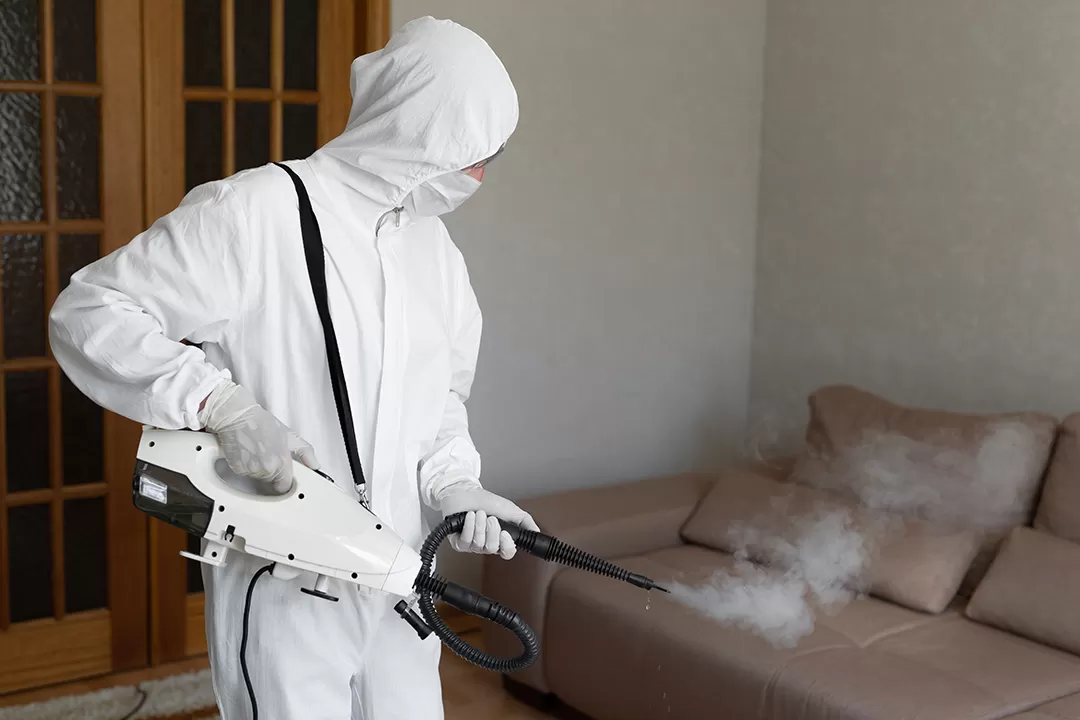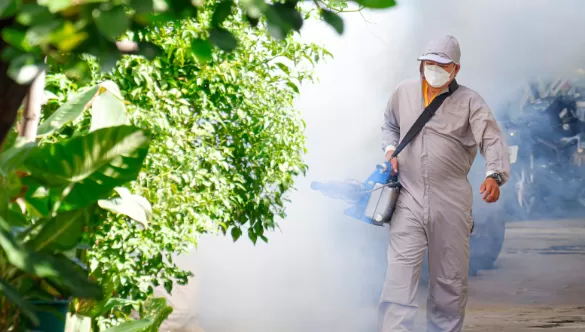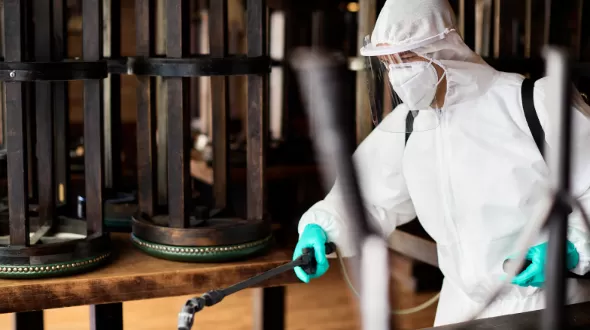There are few things in life as frustrating as having to deal with pests in your home. Sometimes, even the thought of it alone can be appalling. Lucky for you, you’ve been able to get the best pest control experts to help tackle this problem. But, as they walk away from your home with the assurance of a job well done, you’re left with the inevitable question of, what’s next?
Since you’re here with us, you’ll soon be at that stage or already there. So, here are some tips on what to do after a successful pest control session.
Tips On What To Do After Pest Control
Don’t Be in a Hurry to Enter Your Home
Understandably, you’ve missed your home or what it used to be before the pest invasion. However, as pest control experts would advise, you have to wait until the recommended time for re-entry. Depending on the intensity of the control treatment, you may be asked to stay out for several hours to about two days. This waiting period is to ensure the house is safe for you. You’ll need the chemicals to dry out and ensure all vapours and gases are no longer at harmful levels.
Protect Yourself
As you plan to step back into your home, you have to be intentional about protecting yourself. Wear a pair of quality, disposable hand gloves before touching anything in the house. The purpose of this is to ensure your skin has no contact with the pest control chemicals.
Throw Out All Food Left in the Open
Usually, you’ll be advised to store away all food items in a secure cabinet or storage area. At the expiration of the waiting period and upon re-entry into the house, look out for food items that had not been properly stored. This will include both yours and those of your pet(s). There’s no telling how much of the pest control chemicals had made contact with the food, irrespective of whether organic chemicals were used or not.
The same applies if you have pets. Do not let them into the house along with yourself when you re-enter. Not only will they step on objects covered with chemicals, but it’s also hard to control what they’ll lick or put in their mouths. Again, this may seem extreme, but treat the space as a danger zone until it has been adequately cleaned.
Do Not Clean the Treated Area Immediately
No one is advising you to live in a dirty home, but for the chemical treatment to stay effective, you may be advised not to immediately deep-clean your house. For instance, treatment applied on baseboards and wall cracks would need more time to penetrate and eliminate pests than open, flat surfaces. In addition, cleaning the chemicals before they can start acting hampers the pest control process.
Then again, if you select the right professional pest control service provider, they would know how to clean up after themselves. You would not be certainly coming back home to filth and dirt. The type and intensity of pest control used are tailored to the needs of your home. If the pest control experts recommend that it’s fine to carry out a deep clean of your home, then feel free to begin. However, you’ll only reduce the potency of the treatment if you go against expert advice.
Generally, homeowners are advised to hold off from mopping floors for days. This is because mopping reduces the invisible pesticide residues on wall and floor edges. It may not seem like much to you, but they’re effective in keeping the surviving pests away from your home.
Block All Leaks, Cracks, and Openings
When it is safe to carry out deep cleaning of your home, you may want to consider sealing and blocking all leaks, cracks, and openings. These are naturally entryways of pests into your home. While the pest control treatment may have been successful, it’s only a matter of time before a new set of pests re-emerge.
Searching for all these openings may seem tiring, but it would be worth it, at least for the near future. Besides, such repairs are easy to fix with wire mesh, caulk, foam sealant, mortar, grout, etc. While at it, you should also take note of leaf and wood piles, clogged gutters, overgrown bushes, etc., around your home. These are breeding grounds for all types of pests.
Clean Out Dead Pests
In a matter of days and weeks, you’ll slowly begin to notice dead pests around the house or in infested areas. Please do your best to remove them as quickly as you can. The truth is that dead pests attract other pests. They become food for the next scavenging pest looking for a new home. Cleaning out dead pests is not a one-day event. You would have to check for them and remove them regularly.
Also, do not keep paper lying around or in storage areas. This is especially true for wet paper and grocery bags. Wet paper can serve as food for pests, while the accumulated grocery bags can serve as a good hiding area and home.
An effective biological way of ridding your home of pests is by interfering with their survival, growth, and breeding cycles. For example, eliminating their food sources or at least making it hard for them to find food would eventually make your home unattractive to them. The same applies to shelters. If there are no hiding places in your home, pests would naturally have to move out.
So, while getting rid of the pests, also ensure you make your home unbearable and uninhabitable for them even in the future.
Conclusion
Pests are a nuisance that can make life difficult. These uninvited tenants would not only destroy things but are known to leave a mess wherever they go. So while getting rid of them is the first and foremost approach, knowing what to do after successful pest control is even more important.
Since pest control makes use of harmful ingredients, be it organic or chemical solutions, you must take measures to ensure the health and safety of all members of your home — especially kids and pets. Hope through this article you now know the steps to take to safely re-enter your home after pest control is done. Remember, deep cleaning shouldn’t be your first line of action. Also, follow our tips to avoid the problem of re-infestation.


